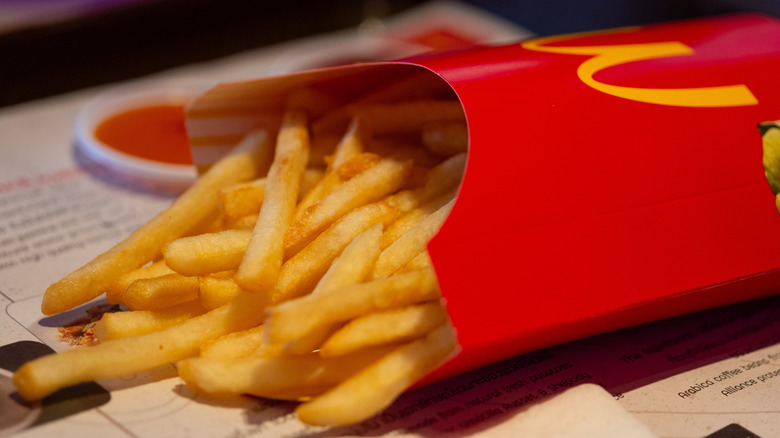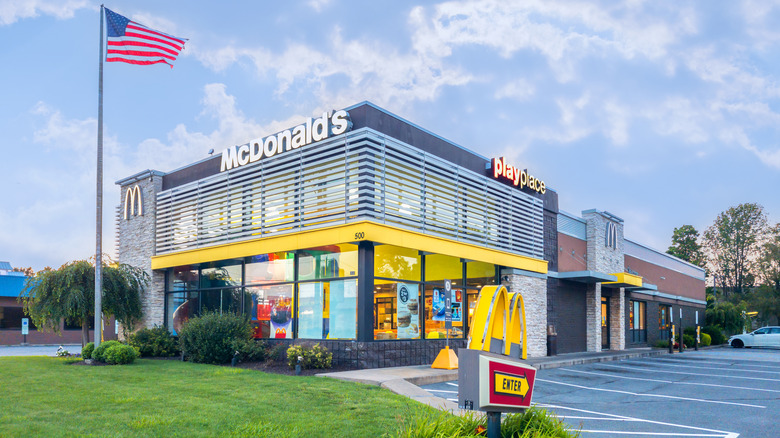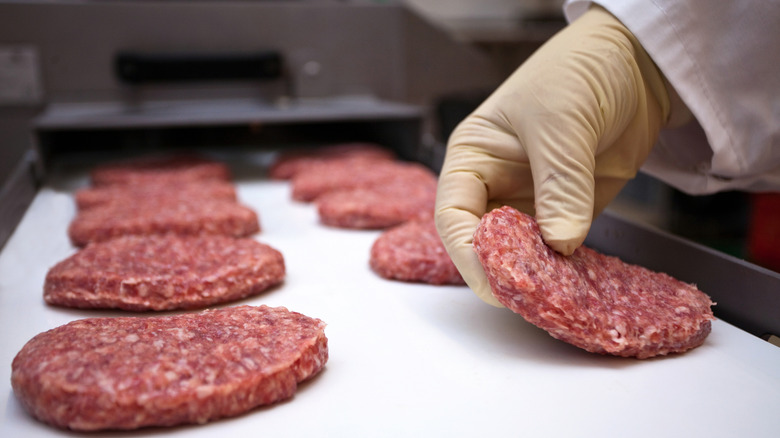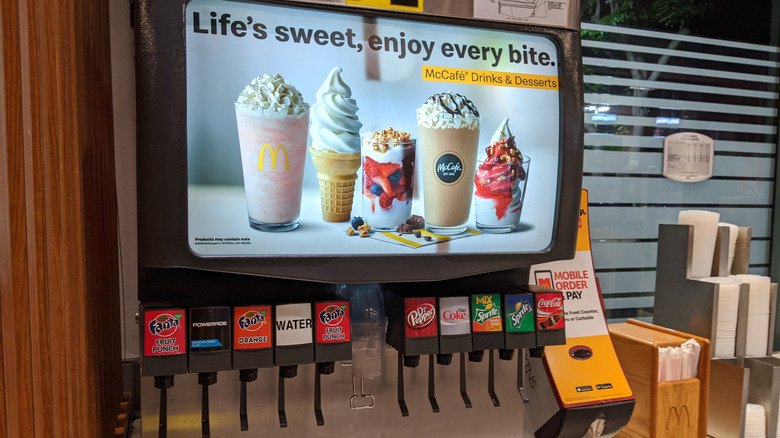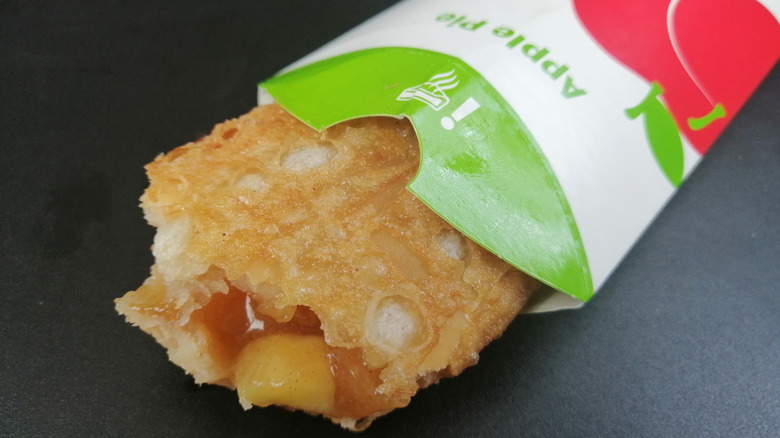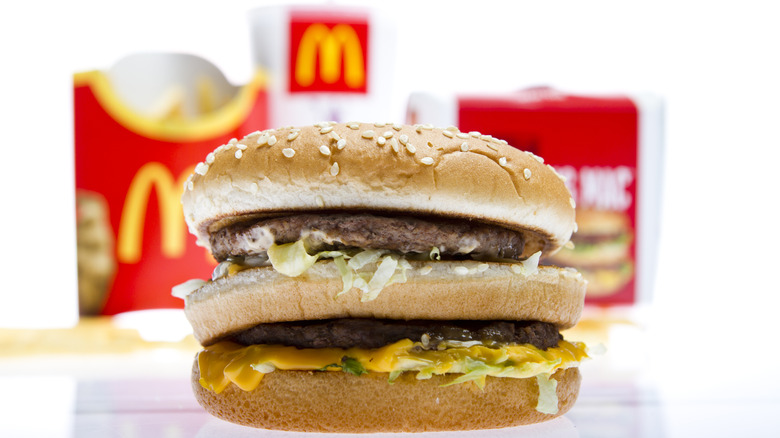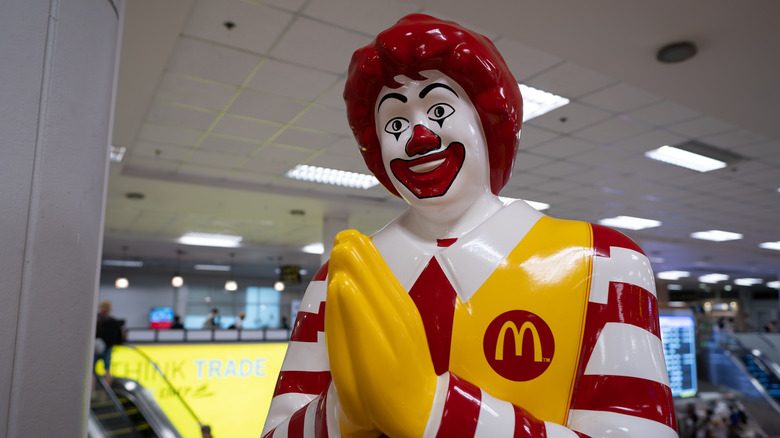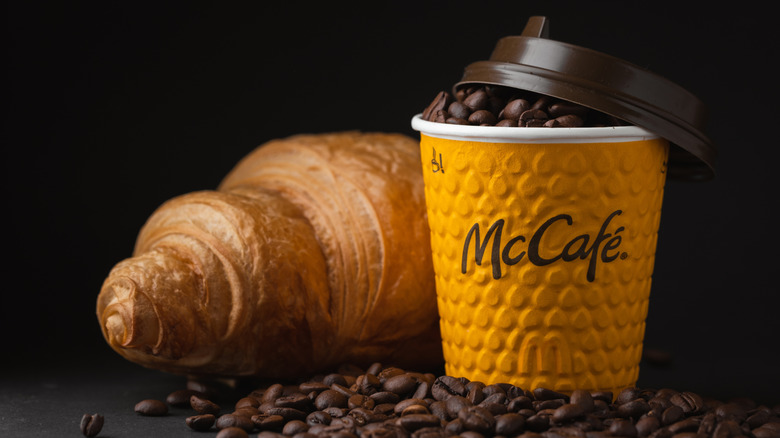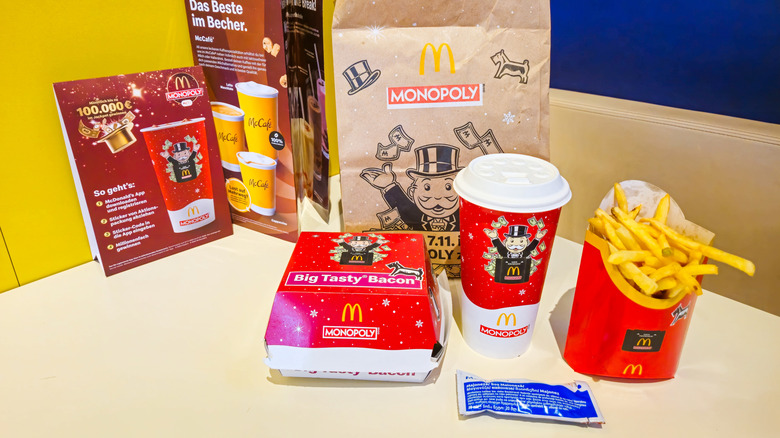9 Secrets McDonald's Doesn't Want You To Know
Having been at the top of the fast food game since 1940, McDonald's knows a thing or two about how to keep a customer coming back and how to protect a brand. But unfortunately, this doesn't always involve complete transparency with its consumers. It has made a name for itself in the fast food world for its crispy fries, delicious Big Mac burgers, and mouthwatering McNuggets. But the iconic Golden Arches didn't become the billion-dollar brand it is without learning how to sweep some things under the rug.
McDonald's is no stranger to recalls, scandals, or controversies. And while the fast food king may prefer to keep some things under wraps, there are some secrets that just refuse to stay hidden. From multi-million dollar lawsuits and pink slime in burgers to massive fraud and duck feathers in the food, these are some of the juiciest secrets, scandals, and schemes that McDonald's doesn't want you to know about.
1. The french fries are not vegan
McDonald's french fries are known for a classic crispy exterior and soft, buttery insides, but unfortunately, these famous fries were once at the center of a juicy scandal. When McDonald's produced the original french fry recipe in the 1950s, it used a shortening company called Interstate Foods to provide the oil that made the fries so crisp and delicious. Interstate Foods used beef tallow in the vegetable oil at the time to save costs and extend the product's shelf life. While the beef tallow created the popular flavor, there was great health concern about saturated fats at the time, so McDonald's chose to phase out the ingredient in 1990.
Removing the beef tallow greatly impacted the flavor of the fries, so to compensate, the fast food company added natural beef flavoring to the recipe. However, McDonald's advertised the fries and other potato menu items as vegetarian-friendly options. Lawsuits were subsequently filed against the fast food titan for misrepresenting the ingredients. The company offered $10 million to settle lawsuits from the impacted groups and posted a statement on its website: "We regret we did not provide these customers with complete information, and we sincerely apologize for any hardship that these miscommunications have caused among Hindus, vegetarians, and others," via CBS News. Today the company uses a canola oil blend to fry its potatoes.
2. McDonald's makes a significant amount of money on its real estate
McDonald's doesn't just make money on its world-famous burgers and fries; its real estate empire makes up a large portion of its income. Ray Kroc opened the first McDonald's franchise in 1955, seeing a wide open market for growth potential. He bought out the owners in 1961, marking the start of a worldwide empire. Today, of the more than 36,000 McDonald's locations worldwide, more than 95% are operated by franchisees and less than 5% are actually owned and operated by the McDonald's corporation.
To expand its real estate business, Kroc and his business partner Harry J. Sonneborn created the franchise program that encourages entrepreneurs to become franchise owners and allows McDonald's to open new stores at impressively speedy rates. In the 2016 movie "The Founder," based on Ray Kroc's autobiography, Sonneborn (played by B.J. Novak) states, "Land. That's where the money is." By leasing real estate to franchisees at large markups, the McDonald's Corporation can maintain a steady revenue regardless of the constant fluctuations in the fast food industry. McDonald's reported a total of almost $6.9 billion in its third-quarter earnings report from 2024, with a majority of that income derived from its real estate empire.
3. The chain was involved in a pink slime scandal
In the early 2010s, McDonald's used a beef supplier company called Beef Products Inc. (BPI) for its hamburger meat. In 2012, a report published by the Congressional Research Service found that a product that BPI called "lean finely textured beef" was in fact a meat by-product made of low-grade beef trimmings to be used as filler in processed meats. The low-quality beef was referred to as "pink slime," a term coined by USDA scientist Gerald Zirnstein in a The New York Times interview, and the scandal gripped the public, opening a much larger conversation about the quality of food products used at fast-food restaurants.
McDonald's issued a statement, via ABC, that announced it would discontinue the use of pink slime in its burgers: "At McDonald's, the quality and safety of the food we serve our customers is a top priority," the company wrote. "At the beginning of 2011, we made a decision to discontinue the use of ammonia-treated beef in our hamburgers. This decision was a result of our efforts to align our global standards for how we source beef around the world."
4. An investigation unveiled fecal bacteria in the ice
Fast food restaurants do not typically maintain a reputation for being overly sanitary, but the state of the ice machines is something that concerns both customers and previous fast food employees alike. In 2017, some of these concerns were confirmed when an investigation by "Watchdog" revealed the ice machines at McDonald's, KFC, and Burger King restaurants in the U.K. were anything but clean, via CNBC. An investigation uncovered fecal bacteria in the ice machines in several locations of all three fast food joints and prompted concerns among consumers regarding the hygiene habits of the fast food industry.
McDonalds' responded to the investigation by saying, "Nothing is more important than the safety of our customers and people and we will continue to review our procedures and training, working closely with our restaurant teams to ensure those procedures are adhered to at all times." However, communities on Reddit still remain concerned about the cleanliness of the water and soda machines at McDonald's. One user shared a disturbing image of what they claim to be a mold-infested ice dispenser at their local McDonald's restaurant, and, according to the fast food employees in the thread, the ice machine is never the first priority on the cleaning checklist.
5. An ingredient in the apple pie comes from duck feathers
Fast food restaurants like McDonald's have never been known for providing the healthiest food options, but some ingredients may still come as a bit of a shock to consumers. While McDonald's popular apple pie may be packed with American-grown apples, not all the ingredients are quite so appealing.
The fast food chain's baked apple pies contain an ingredient called L-cysteine. This conditioner is used to improve the texture of the dough and prolong the shelf life of the product. According to Jeanne Yacoubou, MS, the research director of the Vegetarian Resource Group, L-cysteine is most commonly derived from bird feathers and human hair. While the FDA recognizes it as safe for consumption, some customers might be interested to know that those doughy apple pies have an ingredient that more than likely came from duck feathers, making them non-vegetarian.
6. McDonald's burger seasoning is simply salt and pepper
It's obvious why McDonald's and other fast-food restaurants would want to keep the recipes a secret. Otherwise, why would someone pay for a meal they can replicate cheaper at home? Seeing as McDonald's has made millions of burgers and invested time and money in perfecting the recipe over many years, it's easy to assume that there is some intricate secret formula to its delicious burgers. But the recipe to one of the most famous hamburgers on earth is actually far from complicated.
The big juicy secret to the hamburger recipe is nothing more than a simple mixture of salt and pepper. As reveiled by former McDonald's Chef Mike Haracz in a TikTok, the exact ratio that McDonald's uses in its kitchens is 86% salt and 14% pepper, making it fairly easy to replicate at home.
7. The chain was sued for copyright infringement for McDonaldland characters
McDonald's created a fictional world called McDonaldland with Ronald McDonald and several other characters through a string of ad campaigns in the 1970s. The cast of characters included Hamburglar, Captain Crook, Grimace, Officer Big Mac, and Mayor McCheese. However, they bore a striking resemblance to characters from the 1969 television series "H.R. Pufnstuf."
Sid and Marty Krofft Television Productions Inc. filed a copyright infringement lawsuit against McDonald's for stealing the likeness of the characters from their television series, taking particular issue with Mayor McCheese who was an obvious ripoff of the character H.R. Pufnstuf. A jury found proof of plagiarism in the characters and the court ordered McDonald's to pay $50,000 in damages. The company was unhappy with the decision and decided to appeal, losing once again and being forced to fork over $1,000,000 to the Kroffts. By 2003, many of the McDonaldland characters had been all but phased out of advertisements.
8. A woman suffered third-degree burns from McDonald's coffee
In 1992 a 79-year-old woman named Stella Liebeck ordered a hot coffee from McDonald's. When opening the cup to add cream and sugar to her drink, the coffee spilled on her lap and left serious damage. The woman suffered such severe injuries that she had to receive multiple skin grafts on her inner thighs. According to the suit, McDonald's employees were asked to keep the coffee between 180 and 190 degrees F, which can cause serious burns in a matter of seconds.
There was a lot of media attention and criticism around the lawsuit, but despite being ridiculed for filing such a lawsuit, Liebeck took McDonald's to court and ended up receiving $3,000,000 in punitive damages for the burns she suffered. To make matters worse, poor Stella Liebeck wasn't the only one who suffered damages from McDonald's dangerously hot coffee. There had been 700 other reports in the 10 years preceding her case.
9. A scammer stole $24 million by rigging the McDonald's Monopoly game
McDonald's has held a sweepstakes promotional Monopoly game since the '80s in which customers collect stickers from qualifying menu items to receive prizes. However, between 1989 and 2001, the game was rigged by a man named Jerome P. Jacobson. Jacobson was the head of security for the company that made the game pieces used in McDonald's Monopoly promotion. Through his high-level access, he embezzled the winning game pieces and distributed them out to people he knew for a profit.
Over the time he spent committing the fraud, he stole a whopping $24 million in prize money and the scam became known as the McMillions scandal. The story became so viral that HBO even put out a docuseries in 2020 on the enormous scheme. The FBI reported eight arrests in connection to the embezzlement in 2001, all of whom received felony charges for conspiracy to commit mail fraud. Attorney General John Ashcroft stated in the report, "Those involved in this type of corruption will find out that breaking the law is no game."

